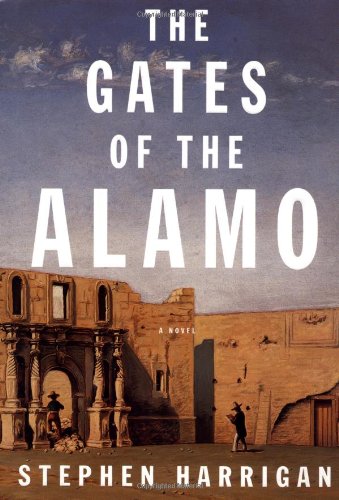The Gates of the Alamo: A Novel
The single most retold incident of the American West, studied and pored over, could easily be that of General Custer’s misadventures at Little Big Horn. If it is, the most obvious runner-up is that of the fall of the Alamo. Texans were always larger than life, even while the land belonged to Mexico, and names like Jim Bowie, William Travis and Davy Crockett are still ones every schoolboy knows today. (Travis never had a TV show, though, even though he was in command, and he’s probably the least known ofthe three.)
It’s the stuff of legends, in other words, the turning point in the fate of Texas. A lot of mythology has been built up over the final days of the men at the Alamo, much of it more fancy than fact. Harrigan takes the facts, and he fleshes them out with a saga that simply sings with elegance and authenticity. He views the confrontation from both sides, the Mexicans conscripted to fight under the ruthless Santa Ana’s command, and the rebellious Texians (as they called themselves then).
Fictitious are Mary Mott, a widowed innkeeper in a small town south of San Antonio, her 18-year-old son Terrell, and a botanist named Edmund McGowan, whose life is wrapped up in cataloguing the flora of the Texas countryside. Under ordinary circumstances, their lives would have been impacted only slightly by the events at the Alamo, but fate often has ingenious (and sometimes unfathomable) ways of mixing ordinary folk with the people who made history, and taking them along similar paths, and paths that cross.
If you are interested in the early days of the American frontier, this is a book not to be missed. It’s of necessity a gory tale, and Harrigan takes an unflinching view of the battlefield and war. On a personal level — rather than the significance of events in the historical record — when death comes to someone before his time, it’s a matter of lost opportunity and potential, and that’s what Harrigan’s incidental message is, intentionally or not — and I cannot believe that it is not.
So — it’s a tremendously sad story — not surprisingly, given the foregone conclusion — but one of triumphs as well — and if I may repeat myself, it’s also one not to be missed.










